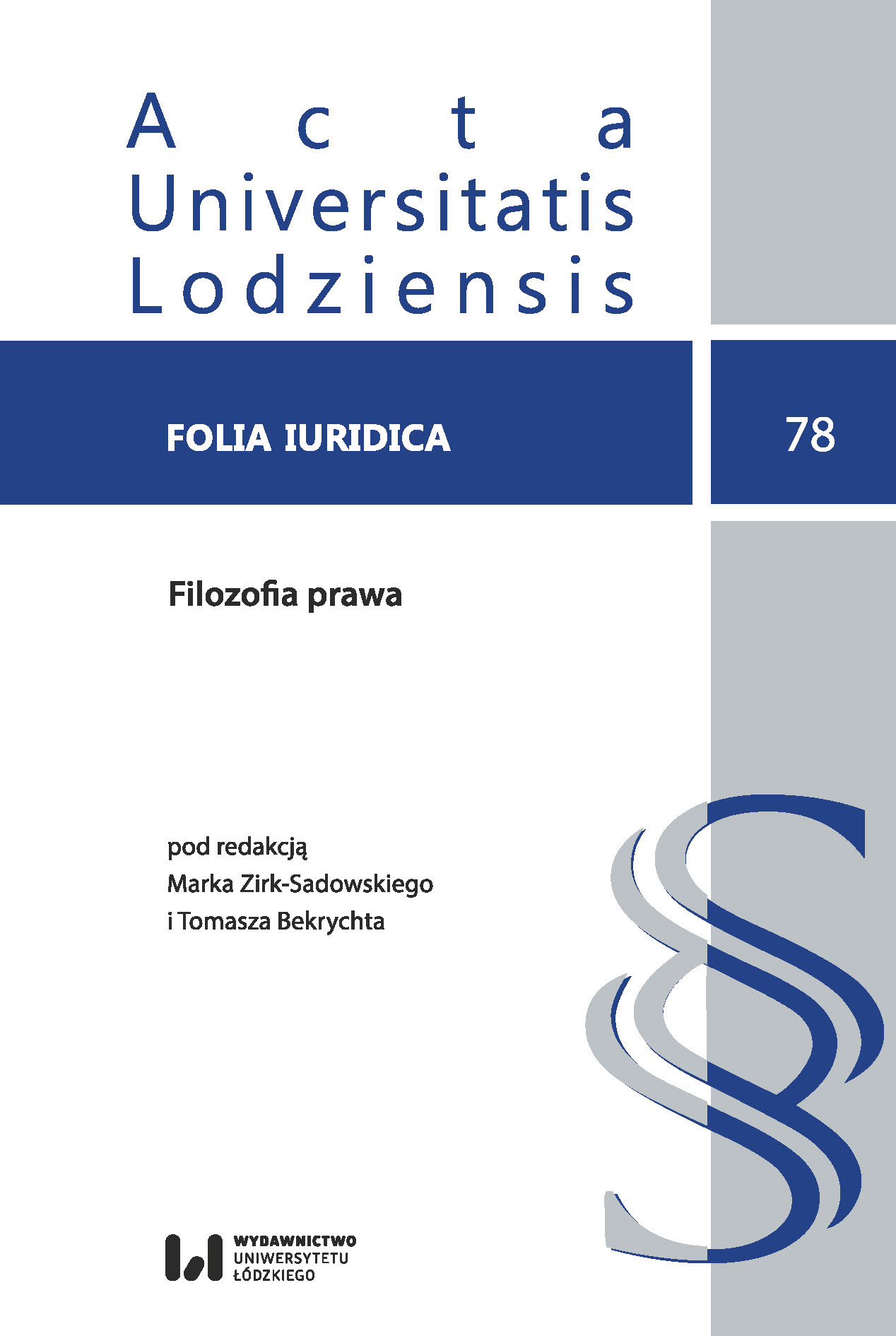O filozofii politycznej Friedricha Augusta von Hayeka w świetle badań nad efektywnością ekonomiczną common law
DOI:
https://doi.org/10.18778/0208-6069.78.02Słowa kluczowe:
efektywność ekonomiczna, common law, ewolucja kulturowa, Hayek, Law and EconomicsAbstrakt
Celem artykułu jest ocena filozofii politycznej Friedricha Augusta von Hayeka przez pryzmat badań nad efektywnością ekonomiczną common law. Jednym z założeń filozofii politycznej Hayeka jest teza o optymalizacyjnym charakterze ewolucji kulturowej. Zgodnie z tą tezą reguły prawne powstałe spontanicznie są ekonomicznie efektywne, nie wymagają więc istotnych korekt ze strony ustawodawcy. Teza ta została poddana dokładnym analizom przez badaczy z nurtu Law and Economics (notabene nie inspirowanych bezpośrednio filozofią Hayeka), których wyniki zostały krytycznie omówione w niniejszym artykule. Konkluzje tych analiz nie są jednoznaczne, niemniej jednak wydają się podważać założenie Hayeka o optymalizacyjnym charakterze ewolucji kulturowej. Rzutuje to w istotny sposób na ocenę postulatów normatywnych Hayeka; w szczególności, uzasadnia sceptycyzm wobec jego krytyki aktywności legislacyjnej.
Pobrania
Bibliografia
Cooter, Robert, Lewis Kornhauser. 1980. “Can Litigation Improve the Law Without the Help of Judges?”. The Journal of Legal Studies 9 (1): 139–163.
Google Scholar
Hathaway, Oona. 2001. “Path Dependence in the Law: The Course and Pattern of Legal Change in a Common Law System”. The Iowa Law Review 86 (2): 601–661.
Google Scholar
Landes, William, Richard Posner. 1979. “Adjudication as a Private Good”. The Journal of Legal Studies 8 (2): 235–284.
Google Scholar
Posner, Richard. 1979. “Utilitarianism, Economics, and Legal Theory”. The Journal of Legal Studies 8 (1): 103–140.
Google Scholar
Priest, George. 1977. “The Common Law Process and the Selection of Efficient Rules”. The Journal of Legal Studies 6 (1): 65–82.
Google Scholar
Rubin, Paul. 1977. “Why is the Common Law Efficient?”. The Journal of Legal Studies 6 (1): 51–63.
Google Scholar
Smith, Adam. 2002. The Wealth of Nations. Mineola, NY: Dover Publications, Inc.
Google Scholar
Tullock, Gordon. 1997. The Case against the Common Law. Durham: Carolina Academic Press.
Google Scholar
von Hayek, Friedrich A. 1967. “Notes on the Evolution of Systems of Rules of Conduct”. W Friedrich A.
Google Scholar
von Hayek, Studies in Philosophy, Politics, and Economics. 66–81. London: Routledge & Kegan Paul.
Google Scholar
von Hayek, Friedrich A. 1973. Law, Legislation and Liberty. Vol. 1. Rules and Order. Chicago: University of Chicago Press.
Google Scholar
von Hayek, Friedrich A. 1976. Law, Legislation and Liberty. Vol. 2. The Mirage of Social Justice. Chicago: University of Chicago Press.
Google Scholar
von Hayek, Friedrich A. 1979. Law, Legislation and Liberty. Vol. 3. The Political Order of a Free People. Chicago: University of Chicago Press.
Google Scholar
von Hayek, Friedrich A. 1988. The Fatal Conceit. The Errors of Socialism. London: Routledge.
Google Scholar
von Wangenheim, Georg. 1993. “The Evolution of Judge-Made Law”. International Review of Law and Economics 13: 381–411.
Google Scholar
Zywicki, Todd. 2007. “Gordon Tullock’s Critique of the Common Law”. George Mason Law & Economics Research Paper 7–13. http://mercatus.org/uploadedFiles/Mercatus/Publications/Tullock%20Common%20Law.pdf [dostęp 6.01.2016].
Google Scholar
Zywicki, Todd, Anthony Sanders. 2007. “Posner, Hayek, and the Economic Analysis of Law”. Iona Law Review 93 (2): 559–603.
Google Scholar
Zywicki Todd, Edward Peter Stringham. 2010. “Common Law and Economic Efficiency”. George Mason Law & Economics Research Paper 10-43: 1–48.
Google Scholar
Pobrania
Opublikowane
Jak cytować
Numer
Dział
Licencja
Prawa autorskie (c) 2017 © Copyright by Authors, Łódź 2017; © Copyright for this edition by Uniwersytet Łódzki, Łódź 2017

Utwór dostępny jest na licencji Creative Commons Uznanie autorstwa – Użycie niekomercyjne – Bez utworów zależnych 4.0 Międzynarodowe.














